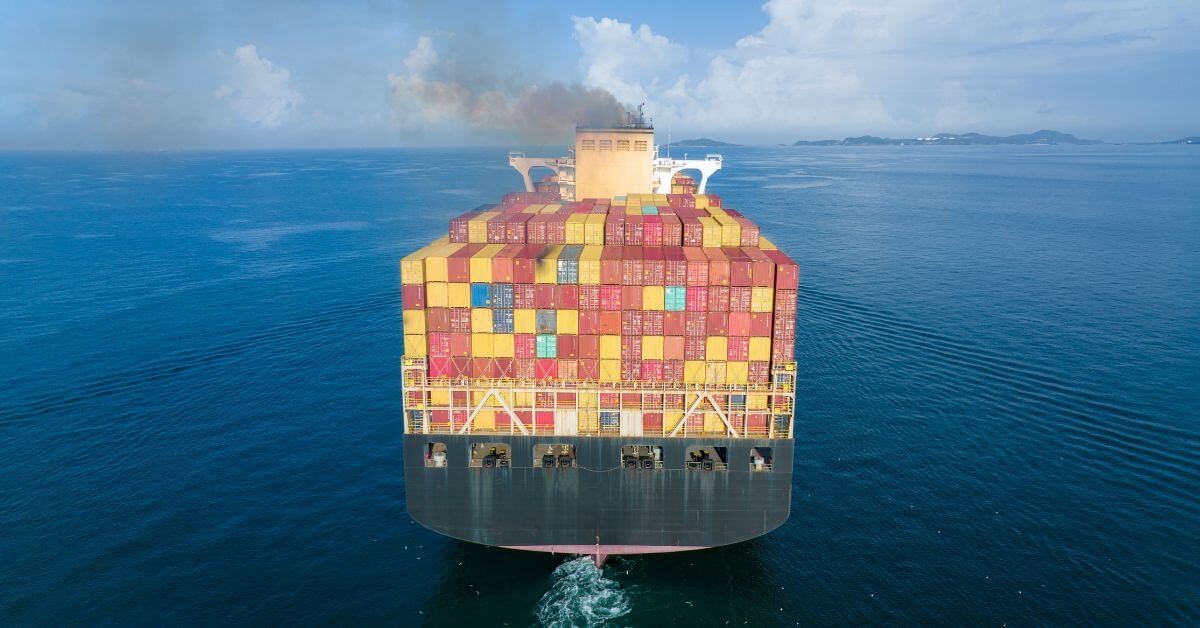Carbon Levy for Shipping Delayed Again

The world’s first carbon levy mechanism aimed at reducing greenhouse gas emissions from international shipping has hit a significant roadblock. Initially seen as a groundbreaking step towards a global carbon pricing agreement, the proposal has been postponed for another year. This delay raises concerns about the shipping industry’s commitment to achieving net-zero emissions by 2050.
Setback for Global Shipping Emissions Targets
International shipping plays a crucial role in global trade, accounting for nearly 90% of it, yet it is responsible for approximately 3% of greenhouse gas emissions. Despite its significant impact, emissions from this sector are often overlooked in national climate commitments. Earlier this year, the International Maritime Organization (IMO) made progress by approving a draft mid-term measure as part of its strategy to reach net-zero emissions by 2050. However, during the latest negotiations, delegates voted to postpone the adoption of this measure until next year.
How the IMO can construct a bridge to a zero-emission future
The decision to delay was influenced by continuous opposition during the negotiation process. Saudi Arabia proposed the adjournment, which garnered support from over half of the participating countries, including the United States and several OPEC members. This setback not only stalls the IMO’s momentum but also weakens the framework needed to achieve the ambitious goal of deploying 10% of Zero and Near Zero marine fuels by 2030.
The implications of this delay are profound. Each year lost narrows the window for the shipping sector’s transition to cleaner fuels. When the measure is finally adopted, it may require shipping companies to implement drastic emission reductions of 20-30% within just two years, creating immense pressure on the industry and potentially undermining investor confidence in its green transition.
Urgent Call for Action from South Korea and Global Leaders
For South Korea, a leading player in the global shipping and shipbuilding industries, this delay is particularly disheartening. The country has already seen major carriers like HMM, Hyundai Glovis, and Pan Ocean commit to carbon-neutral strategies. These companies are looking for regulatory clarity and policy certainty to guide their investments in green technologies. Instead, the postponement has deepened uncertainty and hindered progress.
This moment should not be seen as an excuse for inaction but rather as a call for greater responsibility. The international community must reconvene urgently to finalize the IMO’s mid-term measures, ensuring that progress towards net-zero emissions by 2050 remains on track. The South Korean government, which has been relatively quiet during this critical session, needs to take a more proactive role in the upcoming negotiations.
As 2030 approaches, the urgency of addressing climate change intensifies. A one-year delay may seem minor, but it risks slowing the global climate agenda and could lead to irreversible consequences. South Korea and other Asian shipping nations must collaborate to advocate for the adoption of the Net Zero Framework in future discussions, reaffirming their commitment to a cleaner maritime sector. This pivotal moment demands decisive action to pave the way for a decarbonized and climate-resilient future in shipping by 2050.
